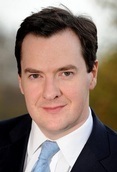Budget: Courting the 'grey vote' tactics criticised for focusing only on wealthy pensioners
Older people’s charity, Independent Age, have called into question interpretations of the Budget as being one that suits ‘the grey vote’, particularly in relation to the absence of social care funding initiatives within the framework.

Political commentators predicted the Budget would be used to court older voters, who are regarded as more likely to vote and also more likely to choose Conservative, but chief executive of the charity, Janet Morrison, points out that the Government’s measures are limited in ambition.
She said: “While on the face of it parts of this Budget could look like an attempt to win the ‘grey’ vote with changes announced on pensions reform and savings tax, in reality it has failed to address key challenges facing many older people and their families today. The Chancellor didn’t say anything about the hundreds of thousands of older people who struggle to wash, dress and cook for themselves who are missing out on vital care and support as council budgets have been cut. And he didn’t tell us how he would plug the estimated £4.3 billion care funding gap expected by 2020.”
She added: “We welcome the Chancellor’s plans to make changes to savings tax. With interest rates at a record low many of the poorest pensioners have had little return on their hard earned savings. However 28 per cent of older people have less than £5,000 in savings anyway, so how much will they really benefit? And the Chancellor said pensioner poverty is at the lowest level ever, but it can’t be right that 1.6 million elderly people still do live in poverty. What help has been announced for the very poorest and frail pensioners in our society?”
Instead of focusing on poor or vulnerable older people, Chancellor George Osborne chose to focus on personal savings and pensions, announcing a new allowance of £1,000 that will take 95 per cent of taxpayers out of savings tax altogether. Additionally, the Government is to give five million pensioners access to their annuity as well as introducing a new Flexible ISA that offers fewer restrictions on how people can invest their savings.
Business growth

From a business perspective, however, many aspects of the Budget have drawn favour, which director-general of the Confederation of British Industries (CBI), John Cridland, attributes to a ‘brighter fiscal picture’, that he says “has allowed the Chancellor to recalibrate his deficit reduction plans.”
He says, “In the next Parliament this fiscal breathing space should be used to achieve intelligent reductions in public spending, together with much-needed infrastructure and innovation.”
Mr Cridland continues: “We need business to boom in all corners of the UK and innovative policies to support our regional entrepreneurs. New city deals, enterprise zones and a dedicated Northern transport strategy will help to secure job creation and investment across the country.
“The ability for some areas to retain 100 per cent of additional business rate revenue will better link businesses with their communities, but we need to go further on reform.
“The current business rates system is clunky, outdated and holds back the high street.”
The CBI also sees the announcement on pensions as an important addition, saying, “Giving savers greater freedom over their pensions, including creating a secondary annuities market, boosts choice but after a period of flux what's needed now is breathing space for the industry and consumers to get to grips with all the changes.”
Latest News Analysis
 04-Sep-19
Extra £1.5 billion announced for social care in Chancellor's Spending Review
04-Sep-19
Extra £1.5 billion announced for social care in Chancellor's Spending Review
 02-Jul-19
Department of Health forced to rethink care homes' nursing rates after legal challenge
02-Jul-19
Department of Health forced to rethink care homes' nursing rates after legal challenge
 18-Jun-19
Overnight care workers forced to sleep in offices and told 'bring your own bedding'
18-Jun-19
Overnight care workers forced to sleep in offices and told 'bring your own bedding'
 14-Jun-19
Back in the closet: Third of care home staff have had no LGBT+ awareness training
14-Jun-19
Back in the closet: Third of care home staff have had no LGBT+ awareness training
 11-Jun-19
PM candidates on social care: Rory Stewart calls fixing care an 'unfinished revolution'
11-Jun-19
PM candidates on social care: Rory Stewart calls fixing care an 'unfinished revolution'